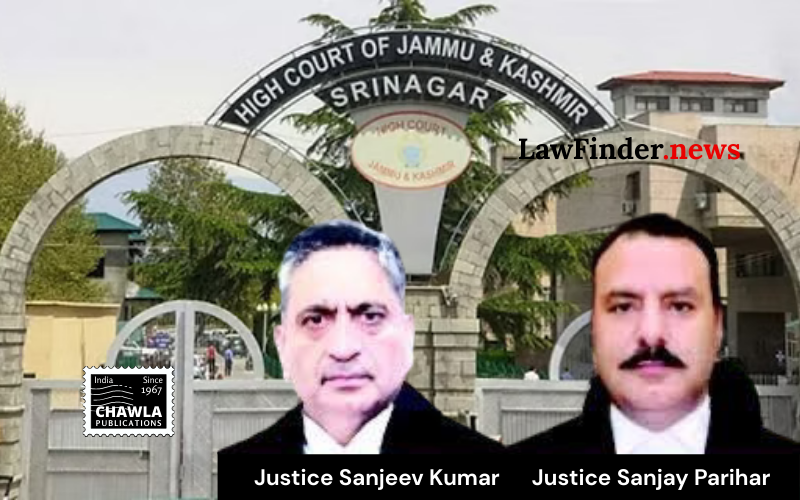High Court Criticizes Trial Court for Misapplying Legal Standards at Charge Framing Stage in Mohd. Anas Case
The Jammu and Kashmir High Court has reversed an order by the 3rd Additional Sessions Judge, Jammu, which discharged the accused, Mohd. Anas, in a case concerning allegations of terrorism-related activities. The appellate court, comprising Justices Sanjeev Kumar and Sanjay Parihar, set aside the trial court's decision, emphasizing that the lower court failed to apply the correct legal standard at the stage of framing charges under the National Investigation Agency Act, 2008, and the Unlawful Activities (Prevention) Act, 1967.
The case against Mohd. Anas and another individual, Sheran Nawaz Sheikh, arose from allegations of conspiracy with handlers across the border in Pakistan to spread terrorism in Jammu & Kashmir. The prosecution presented evidence such as incriminating chats, videos, and financial transactions linked to foreign handlers. The trial court, however, discharged the respondents, reasoning that the evidence was primarily based on inadmissible confessional statements and lacked corroboration.
The High Court criticized the trial court's approach, stating that at the charge framing stage, the court's task is to ascertain the existence of a prima facie case, not to conduct a detailed examination of evidence as if at trial. The High Court noted that the material presented raised grave suspicion of the accused's involvement, warranting a trial. The appellate court highlighted that the trial court prematurely assessed the evidence's probative value, denying the prosecution an opportunity to prove the allegations during trial.
Justice Parihar, writing for the bench, reiterated legal principles governing charge framing, emphasizing that the presence of grave suspicion, unexplained by the accused, justifies proceeding to trial. The High Court's decision restores the charge sheet against the respondents for further consideration by the trial court.
This decision underscores the appellate court's role in ensuring that trial courts adhere to procedural norms and legal standards, particularly in cases involving serious allegations like terrorism. The High Court's directive mandates the trial court to reassess the case, focusing solely on determining whether a prima facie case exists, without delving into the merits of the evidence.
The case will now return to the trial court for fresh consideration, with the High Court's order serving as a guiding framework for reassessing the necessity of framing charges against the accused.
Bottom Line:
Discharge under NIA Act - Trial Court erred in evaluating evidence as if at trial stage instead of determining prima facie case for framing charges.
Statutory provision(s): National Investigation Agency Act, 2008 Section 21, Criminal Procedure Code, 1973 Section 227, Unlawful Activities (Prevention) Act, 1967 Sections 18, 20, 23, 38, 39, Evidence Act, 1872 Section 27
UT of J&K v. Mohd. Anas, (Jammu and Kashmir)(DB) : Law Finder Doc Id # 2786389




